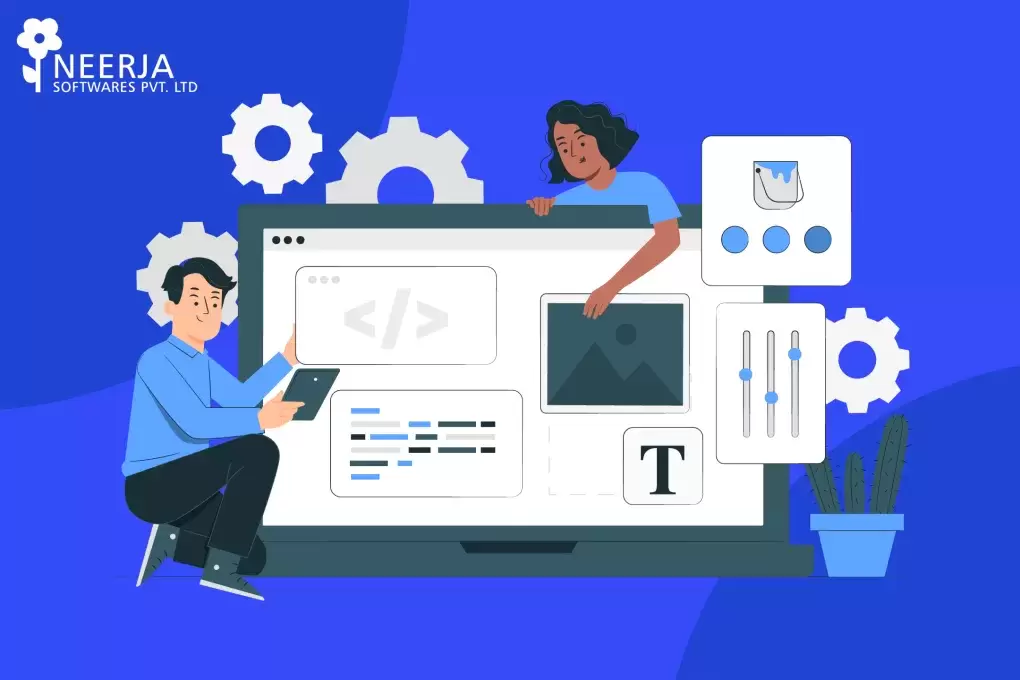
In 2019, in a pre-pandemic world, the airline industry produced an astounding $2.7$ trillion in revenue, contributing 3.6% to the world's GDP. The negative economic effect of COVID-19 on the industry has been serious. This new economic tension put on airlines will without a doubt become a driving power of progress inside the industry and its future.
Airlines hopes to rebuild, cut costs and become more efficient to recapture productivity and fulfill shareholders at the earliest opportunity. This strain will without a doubt advance technological innovations inside the industry to become more efficient and effective.
In this blog post, we investigate how artificial intelligence (AI) and the internet of things (IoT) are proceeding to change the manners in which airlines operate worldwide.
Quick Navigation
Digital transformation doesn't just affect where our activities are coordinated, where we focus, and where we act. However, it should likewise stir up the internal processes of the actual company. Technology's effect on the airline industry changes when important to take advantage of digitalization.
Artificial intelligence in aviation is reshaping the future of airlines. The reception of the IoT in aviation shapes a whole digital transformation process for the airline industry. Their goal is something similar: to provide a superior customer experience.
The digital transformation process is characterized as the essential changes to a company for technology and its prospects to prompt the method of working together as a company whether it’s an airline company or an IoT app development services company.
What Are the Advantages of AI In Aviation?
Artificial intelligence (AI), among the arising technologies, is still at an underlying stage in the aviation business. We can see AI execution via airlines for aircraft fuel optimization, facial recognition, customer services, operation, management, maintenance, and more.
Yet, AI has significantly more potential than these Applications. It can change how airlines work together. The following are a portion of those applications of AI in aviation maintenance:
Optimizing Fuel Usage
Fuel is a very expensive item for airlines. Along these lines, diminishing aircraft fuel consumption is significant. In 2019, fuel represented 29% of Airline operation costs.
"Sky Breath is an AI-driven program made by Open Skies to diminish fuel outflows by 5% with no aircraft modification and airline segmentation."
With the utilization of Big Data algorithms, joining ecological factors, climate conditions, and chronicled flight data and aircraft attributes, this program can create a precise prediction of fuel necessities for each flight.
When the airline knows the amount they should spend on fuel, they can design routes as indicated by demand and drop those which become economically high.
Aircraft Maintenance
Aircraft maintenance is additionally a critical yet expensive weight on the asset reports of airlines worldwide. As per IATA, airlines spend $69Bn on aircraft maintenance, making it 9%of all out operational costs.
The suggestion of a more designated maintenance program without thinking twice about passenger safety would offer airlines a genuine monetary break.
"The American tech firm, Spark Cognition is driving the way in this technology, planning a solution for the airline industry to change how airlines organize the maintenance schedule of their fleet."
AI is assisting airlines in a more proactive and deterrent approach for aircraft maintenance. Rather than getting sorted out maintenance timetables, airlines can before long objective explicit aircraft failures. This way AI in aviation maintenance is an expert key!
Crew Management
Consistently airline crew managers need to manage complex networks of individuals, including flight attendants, pilots, and engineers. Rescheduling any of the crew individuals can be unwieldy.
Numerous elements affect the choice of a manager, like accessibility, believability, certifications, and qualifications of the crew part.
"Jeppesen, a Boing company, has tackled this issue utilizing AI. Their AI-based crew rostering system considers every one of the viewpoints referenced above and manages crew individuals efficiently."
Customer Services
Delta Airlines reported in May 2017, they will contribute $600,000 to fabricate self-service pack drop machines and kiosks for passenger identification. The stand will have an implicit camera that will take photographs of customers at the time of registration and match it with their passports.
Both the face recognition and self-service things drop-off will use machine learning algorithms to play out their undertakings.
"United Airlines reported its cooperation with Amazon's AI, Alexa, in September 2017. They assembled a skill in Alexa named United."
When the customers add the United expertise, they can pose any normal inquiry through voice orders. Alexa's natural language causes customers to feel as though they are conversing with a human sales rep.
Ticketing Systems
Air ticket prices depend on oil prices, flight distance, booking date, competition, seasonality, the brand worth of the airline, and that's only the tip of the iceberg. A few boundaries change every day.
The AI algorithm is a definitive answer for this issue. It will assist airlines with working out the most efficient prices for each flight, which will assist them with remaining beneficial and give cutthroat pricing to their customers.
What Are the Advantages of IoT In Aviation?
As far as the IoT, the sensor limit and communication with digital systems have explicit destinations, permits aviation companies to improve in numerous spaces, regardless of whether in customer service or their internal management.
The following are a few employments of IoT in the aviation industry:
Improving Passenger Experience
Components, for example, climate control in the cabin can be controlled automatically and optimized by appropriating strategically positioned temperature sensors all through the cabin.
Then again, the progression of data should likewise permit more information to be given to the individuals who are sitting tight for a flight in the airport and assist them with automating the registration process.
Increase Safety Measures
For various parts of the airplane, to have sensors to quantify certain settings, and to have the option to communicate with one another and additionally with a central system is a nice thing.
Most importantly, the ground controls, improve the efficiency and safety of the aircraft, permitting them to complete diagnoses progressively, which gives the chance of doing maintenance and preventive interventions that extend the operating time of the aircraft safety.
"In this manner, offering an additional worth both to the actual airline and to the customer is a must. A good illustration of this training is how Virgin Atlantic is doing in its Boeing 787 fleet."
Management of Goods/Luggage
Not discovering your gear at your objective may before long be a thing of the past for airline customers on account of RFID labels, a technology being applied by Delta Air Lines.
Similar technology can be utilized by shipping companies to track goods. Moreover, tracking data can be shipped off passengers or shipping companies so they can essentially monitor consistently and from their smartphones where their assets are.
Helps In Saving Money
Taking the most efficient routes simultaneously helps in optimizing fuel consumption, brings about lower expenses, and consequently expands benefits. This all is possible with IoT, sensors, chips, and integrated systems backed upon software and hardware.
"AirAsia has effectively carried out a system with these components that will give it assessed investment funds of between 30 to 50 million dollars for more than five years."
Final Words!
The AI and IoT tech pattern has recently started in the airline industry. As the aviation industry keeps on using arising and fresh technologies like Big Data, Data Science, Deep Learning, Machine Learning, NLP, Cybersecurity, etc., they will get gigantic advantages in revenue management, predictive maintenance, flight scheduling, and more.
At last, these loads of advantages will bring about a certain new thing, which is at the center of each airline's business, i.e., a superior customer experience. On the off chance that you work in the world of aviation in any of its fields, the front line of the IoT will always interest you.
For those airlines which endure the pandemic, AI and IoT technology will keep on driving down those immeasurably significant operational costs when the industry needs cost-saving strategies more than ever!















